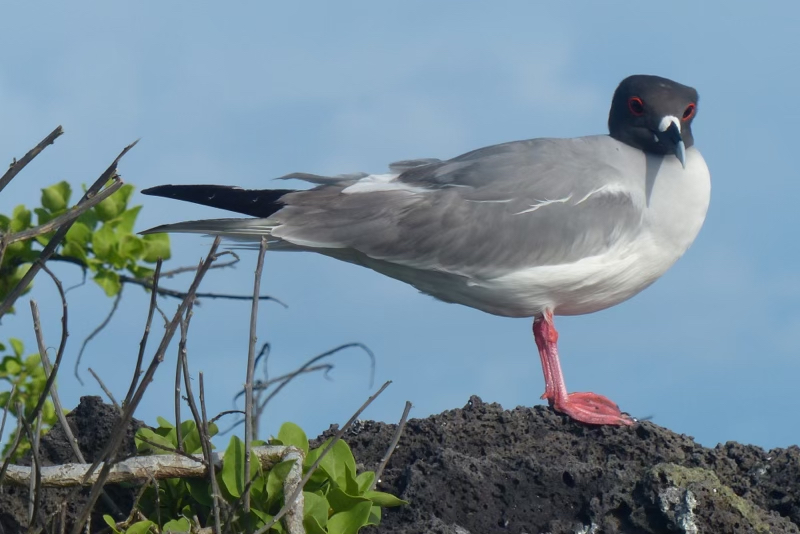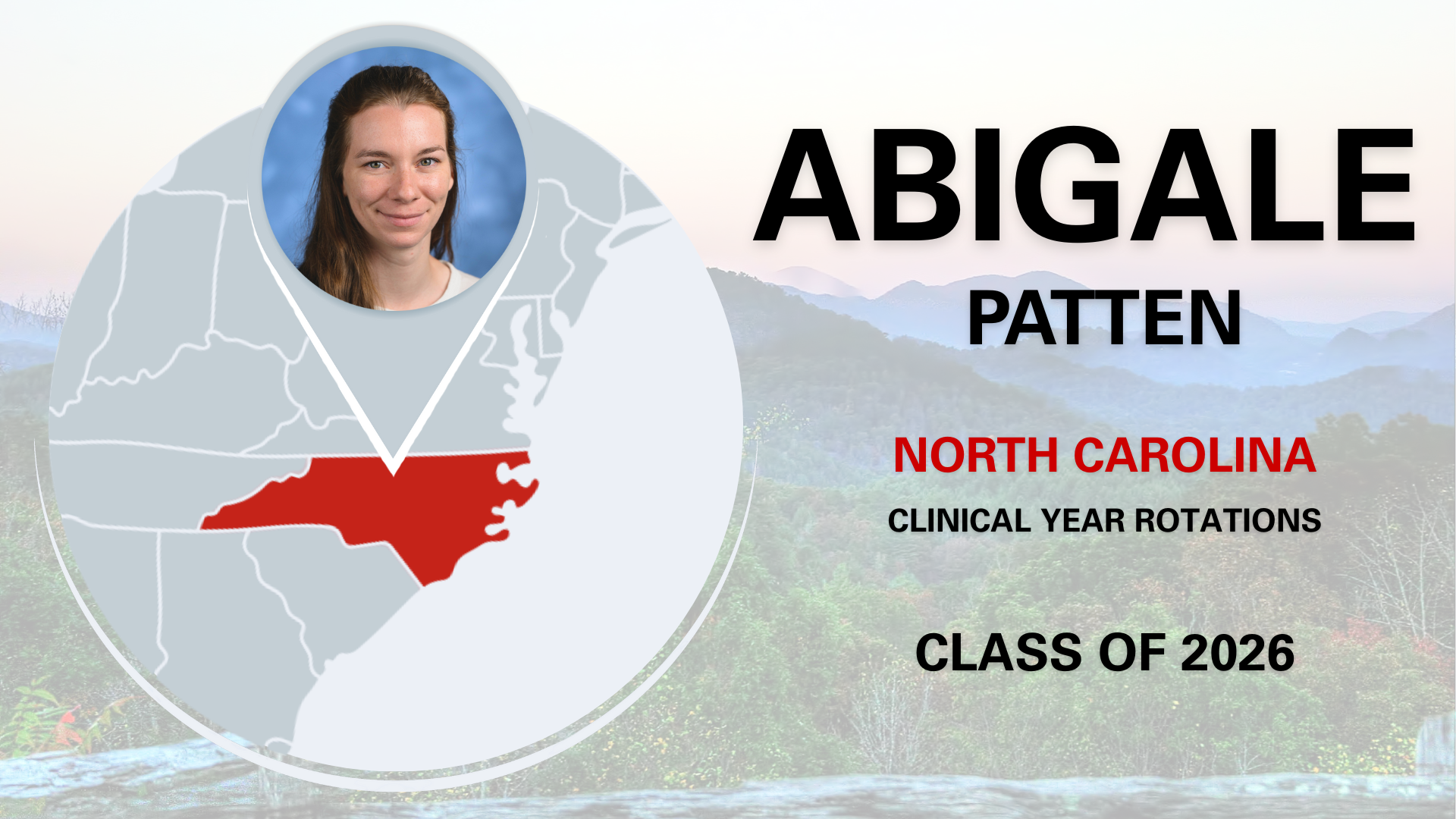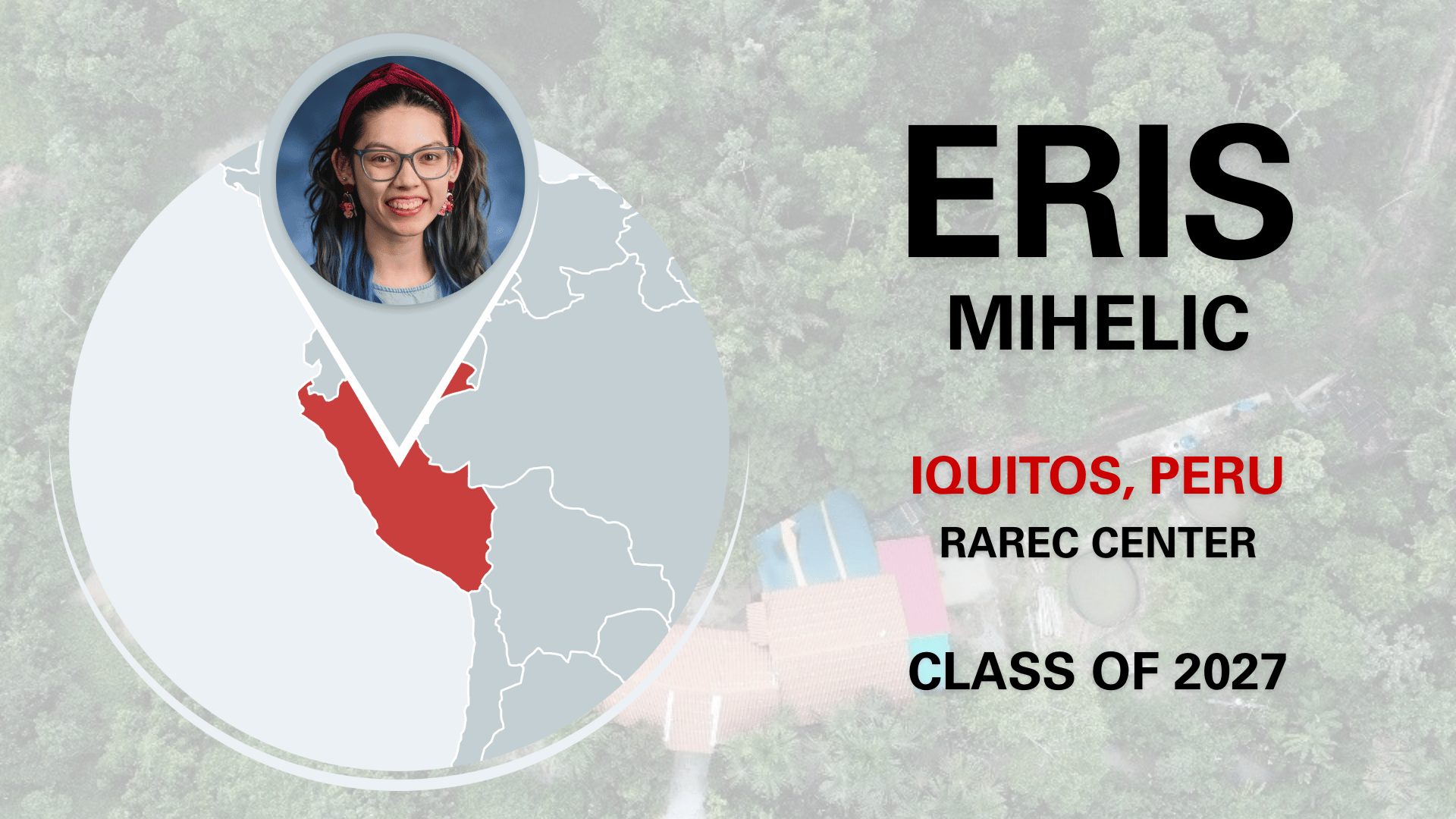Gone to the Galapagos: Follow along as NC State team studies sea lions, sharks and stingrays
Internationally known Professor Greg Lewbart will provide pictures and stories during his trip to the archipelago with new doctors of veterinary medicine from the Class of 2022 and others.
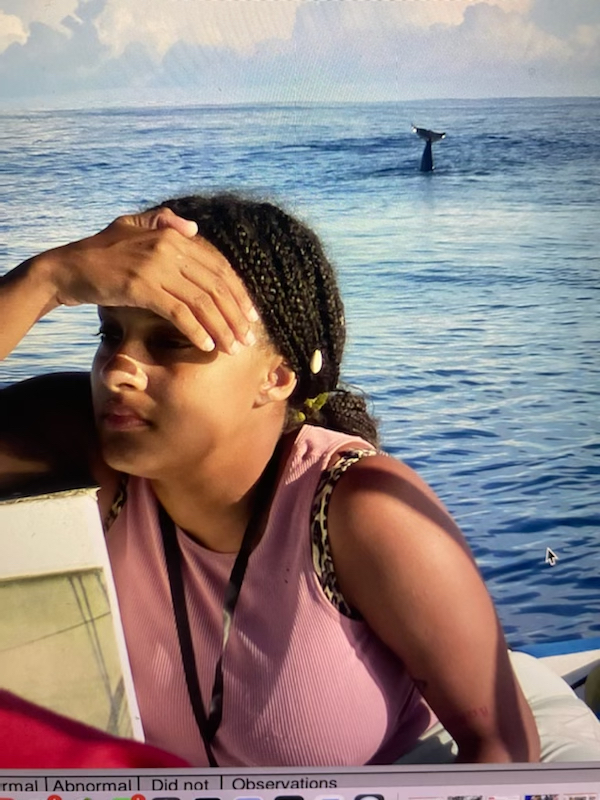
Every spring break, Professor Greg Lewbart takes an eager contingent of third-year students from the NC State College of Veterinary Medicine to the scientifically renowned Galapagos Archipelago to do hands-on research of the wildlife and ecology off the coast of Ecuador.
Because of the COVID-19 pandemic, the trip – a popular and important CVM elective that earns each student one credit and priceless experience in global health – was canceled for the 2020 and 2021 breaks, leaving scores of disappointed future veterinarians.
In May 2021, however, the pandemic rules loosened, and Lewbart, professor of Aquatic, Wildlife and Zoological Medicine, was able to take the students who were supposed to go to the Galapagos in 2020. The third-year students of 2022 took the trip as usual during their spring break in March.
But the members of the Class of 2022, the third-years of 2021, never got to go. Until now.
Lewbart is in the Galapagos again, his 24th trip to the islands since his first in 2013, with 28 other travelers affiliated with the NC State College of Veterinary Medicine including faculty, staff, current DVM students, recent graduates and a Ph.D. student.
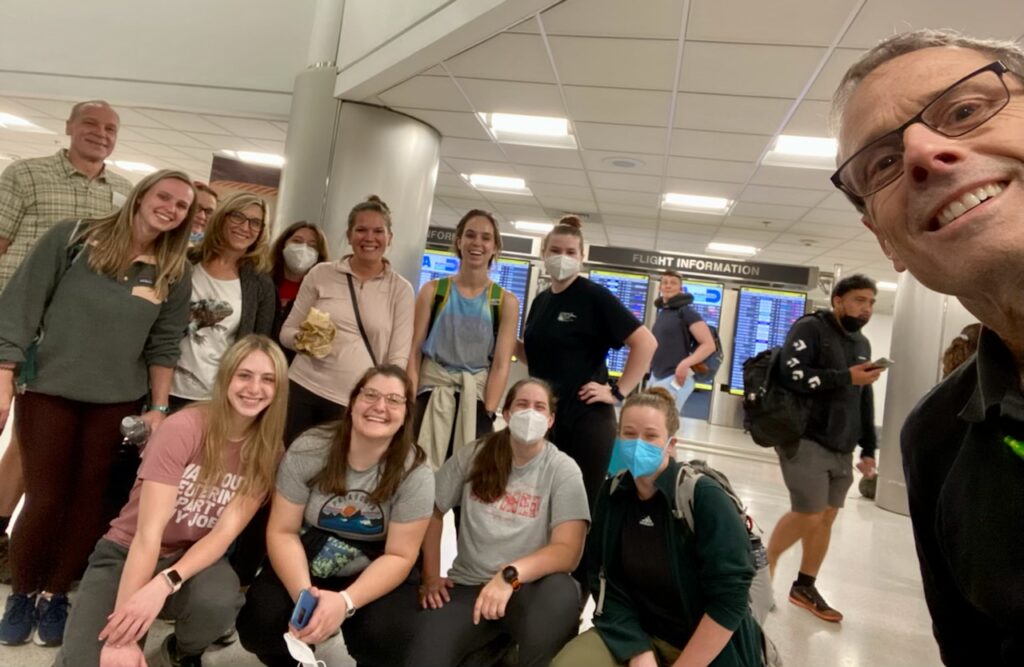
And what a trip it will be. If you follow the college on its social media channels, you can go along, too.
Lewbart and others will provide pictures and stories during the trip, scheduled to last through May 25. Keep up with the progress on Twitter @NCStateVetMed, on Facebook @NCStateVetMed and on Instagram @NCStateVetMed.
Internationally known for his critical work studying iguanas, Lewbart says the research focus during this Galapagos trip will be on sea lions, sharks, whales and stingrays.
“There’s an interesting situation where a lot of the sea lions cough, these hacking, crazy, sounds-like-they’re-going-to-die coughs,” says Lewbart, who notes that research conducted during previous trips has been highlighted in multiple publications. “They don’t die, but whatever is going on doesn’t seem normal.”
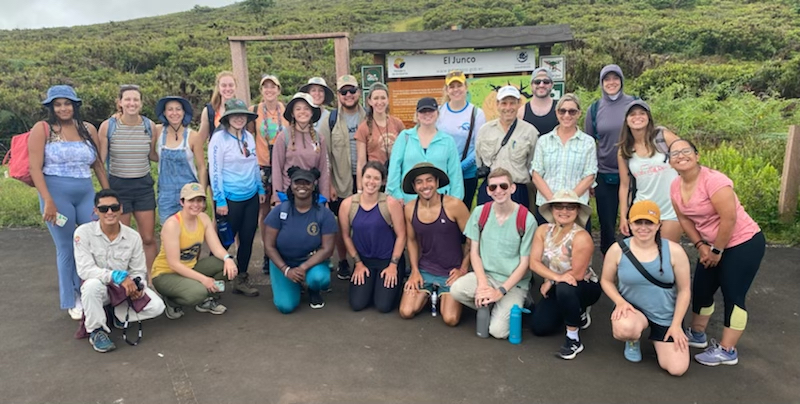
Rangers from the Galapagos National Park, with which Lewbart works closely, will catch the sea lions, and the NC State team will do health assessments, taking blood, swabbing noses and examining fecal samples. NC State faculty members Diane Deresienski, Eleanor Hawkins and Shelly Vaden will lead the efforts to examine and sample the sea lions.
“Could it be worms?” Lewbart asks. “Could it be normal? There are a lot of dogs in the Galapagos. Could it be crossover pathogens? We’re going to be looking at that. Nothing has been done with canine pathogens in sea lions in 10 years.”
Another team is going to go out to “sample” dolphins and whales for genetic markers and heavy metal toxicity. “When I say sampling, I mean, you go out on board, and the dolphins and whales come to you – sometimes,” he says.
The park rangers also will catch baby hammerhead and blacktip sharks so the NC State team can complete health assessments, including taking blood samples.
Lewbart often provides health assessments and other veterinary care to the National Park Service, which in turn allows Lewbart’s students to have hands-on experiences that few other veterinary colleges can provide.
The elective webpage promises students the ability “to observe and in some cases work with wildlife across the Galápagos islands and learn about the archipelago’s natural history, cultural offerings and the logistics of improving animal health in sparsely inhabited locations.”
During the trips, the NC State team works out of the Galapagos Science Center, which was founded in 2011 by the University San Francisco of Quito, Ecuador, and the University of North Carolina at Chapel HIll. It is the only academic research center in the archipelago.
The Galapagos Islands are one of the world’s most important destinations for observing a rare diversity of plant and animal species. Charles Darwin’s theory of evolution arose after he visited the Galapagos in 1835.
